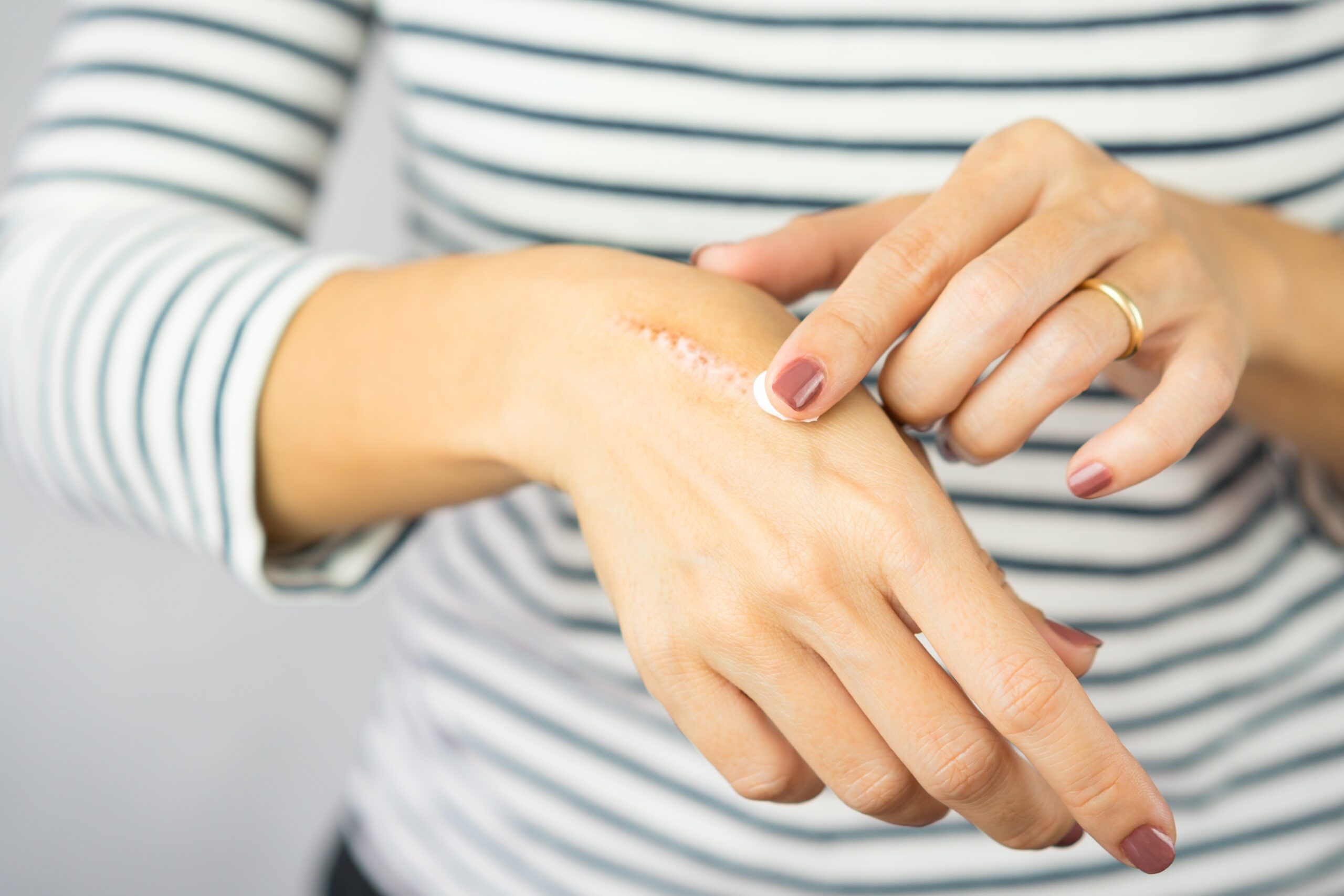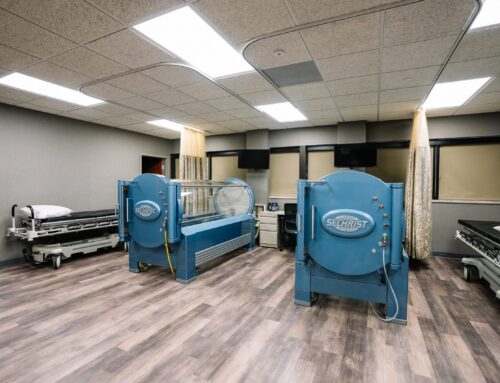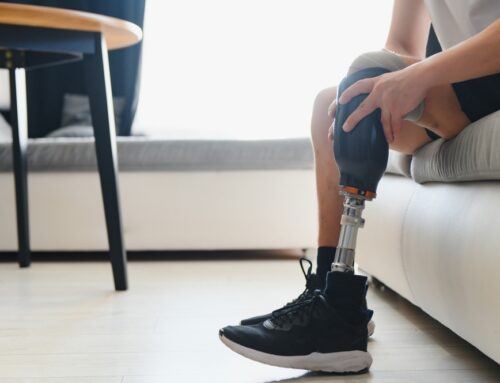When a wound comes about, whether minor or major, it’s important to have a proper skin care routine set in motion to promote not only healing, but also prevention of potential scarring. Many people are not entirely clued in on the dos and don’ts of adequate skin care for their wounds, which leads to further issues down the road. Some may even be in the habit of using basic house products, such as hydrogen peroxide to clean wounds, which is not always the best choice.
Since there are a variety of wounds there will also be different types of skin care treatment, but all with the same goal to promote optimal healing. Of course, these tips are for educational and information purposes, and do not replace medical advice. It is always important to consult with a skilled medical provider if you are experiencing severe wounds.
Why is Skin Care Important for Wound Healing?
You may be curious as to how skin care plays a role in healing a wound. Some simply think that the best way to treat a wound is by leaving it alone. And while there is some truth to allowing your body’s cells to heal over a wound, there are other products that can be used to quicken this process without damaging healthy cells.
Skin care is important for wound healing, as its goal is to create the perfect conditions around a wound so that it can heal right, and works to prevent further complications and infections.
What Promotes Skin Wound Healing?
Moisture and Skin Healing
If you find yourself with a wound in the early stages, especially if it’s minor, there are some practical things you can do to promote stronger healing. First, you will want to ensure that the wound has an adequate amount of moisture. This can be done by cleaning the wound gently with soap and water, applying a thin layer of a petroleum jelly based product, and applying a band-aid. Hydration helps to keep the elasticity of the skin strong and promotes better blood circulation which your body needs to heal a wound!
Diet and Skin Healing
Additionally, consider upping your diet with whole food and nutrients. Look for foods that are high in:
- Protein: Chicken, beef, and turkey are high in protein and zinc, which help with tissue growth and repair.
- Vitamin C: Oranges, strawberries, peppers, and broccoli are good sources of Vitamin C, which helps with collagen production and connective tissue.
- Copper: Shellfish, beans, and potatoes offer copper, which promotes collagen production and elasticity of the skin
You can also ask your doctor for a blood panel to check your vitamin levels to see if you have any deficiencies.
Preventative Skin Care
While you can not also control how and when you get a certain wound, there are preventative steps you can take to keep skin healthy. Some healthy, preventative skin care practices include:
- Daily use of sunscreen, SPF 50 or higher
- Daily use of a gentle moisturizer
- Daily use of a gentle cleanser and body wash
- Nutrient-dense diet
These practices can help to keep your skin healthy, and, if a wound were to arise, can promote better healing.
Skin Care for Minor Cuts
Minor cuts can come from things like paper cuts, cooking, sports, and even from pets! Typically with these cuts they won’t warrant a visit to the doctor or emergency room. You will only need the proper care to prevent infection, which could result in a visit to the doctor’s office. Here are some ways to care for minor cuts:
- Clean the cut with gentle soap and water
- Apply hypochlorous acid spray to disinfect the area, without stripping moisture
- Apply a thin layer of petroleum jelly, like a vaseline, to seal the wound with moisture
- Apply a band aid to prevent external bacteria and secure moisture
Skin Care for Minor Burns
Things like a curling iron, grills, hot water, and candles can cause minor burns when not handled gently. In the same way that a paper cut does not warrant a visit to the ER, minor burns do not always mean you need to rush to your local doctor. Of course, monitor symptoms in case you find the burn worsening. If your burn is minor here are a few practical steps to take to ensure overall healing:
- Cool the burn by running cold water over it for a few minutes
- Clean the area with gentle soap and water
- Leave any blisters alone
- Apply aloe to soothe the burn and lock in moisture
- Apply gauze over the burn to keep it clean and moisturized
Skin Care for Surgical Wounds
For most surgical wounds, your provider will want you to keep the wound covered with either a dressing or band-aid, depending on the size and type. Typically your provider will recommend to keep the surgical wound dry, and not to remove the dressing unless advised. With surgical wounds, it’s crucial to follow each step from your provider to ensure quality healing.
Skin Care for Ulcers
Depending on the severity of a skin ulcer, there are different ways to treat and provide care to the affected area. It will be important to keep the ulcer clean and protected with a dressing or bandage to keep away bacteria and provide moisture. For severe ulcers, you will need to connect with your medical provider for additional treatment.
Treating Scars with Skin Care
A common result of an injury, wound, or cut to the skin is a scar. Scars form when the skin is trying to heal from a wound or injury, with collagen production mending the skin back together. Scars can look raised, discolored, sunken, or flat. For some people, scars can bring different insecurities based on where a scar is located and its size. If you do find yourself with a scar after a wound, here are some ways to treat and improve the appearance of scars:
- Apply sunscreen daily, and especially when you are exposed to the sun for a prolonged amount of time
- Consistent moisturizer
- Retinol usage can help lessen the appearance of acne scars and hyperpigmentation
- Chemical peels
- Microneedling
For more options as to how to treat the appearance of scars, talk with your doctor, as there are surgical procedures that can treat scars.
Wounds and Hydrogen Peroxide
One common product many reach for in their cabinet when looking to treat a wound is hydrogen peroxide. While this product can be helpful to remove stains and disinfect items, it may not be the best solution for treating wounds. Hydrogen peroxide can sometimes impact the healing process of a wound by driving out healthy cells nearby. The same can be said of rubbing alcohol, as that product can also harm healthy cells that work to heal the wound.
Instead of opting for hydrogen peroxide when a wound appears, go for a hypochlorous acid spray to kill off any additional bacteria after rinsing the area with soap and water.
Self Care Dos & Don’ts
Whether you’re looking to strengthen your skin to prevent future injury, or looking to repair your skin from an injury, here are some helpful self care dos and don’ts:
Do
- Increase Rest: Be sure you are giving your body the time it needs for quality sleep. During sleep your body works to repair damaged skin cells. Without adequate rest, you are not allowing your body the time it needs to to repair.
- Increase Water Intake: Drinking enough water daily not only helps with hydration, but can even give your skin more a plump and dewey look to it. Water also helps improve circulation, aids in digesting food properly, and removes toxins, which in turn can impact the look of your skin.
- Consistency with Skin Care: With skin care, results are not usually seen within a day or two. It may take a few weeks to fully see results when implementing a skin care regimen. Don’t give up so soon, but give it at least a month or two for results.
Don’t
- Avoid Tanning Beds: Tanning beds can impact the look of your skin by creating wrinkles, loss of firmness and elasticity, and can create sun spots. Not only do tanning beds impact your skin’s appearance, they can also increase your chances of skin cancer by at least 50%. If you’re wanting a sun-kissed look, opt for a spray tan or sunless tanner lotion.
- Limit Alcohol Intake: In some cases alcohol can trigger a rosacea flare up as well as reduce elasticity.
- Avoid Smoking: Smoking can lead to premature aging and dark spots in the skin.
When to See a Doctor
While these tips for treating and preventing minor cuts and burns can be helpful in the healing process, there can be certain situations that warrant a visit to a medical provider. If you receive a cut or burn that may seem harmless at the time, be sure to watch for the following symptoms:
- Excessive bleeding from a cut
- Pain that lasts for hours following the injury
- Increase in size of the wound
- Chronic itchiness
Fever, vomiting, and shortness of breath can also be a sign of an infection which would require the attention of a doctor
Wound Healing With Innovative Wound Care
At Innovative Wound Care Specialists we provide top, quality treatment for the following wounds:
- Pressure injuries
- Diabetic and neuropathic ulcers
- Minor burns
- Problematic surgical wounds
- Arterial ulcers
- Venous stasis ulcers
- Trauma wounds
- Lower extremity edema
If you are in need of treatment for a wound, or would like one of our specialists to create a proper treatment plan for you, then contact us today. Our goal is to provide comfort and care for each patient who comes to our clinic looking for wound relief and healing. We know we can do just that for you, too.





